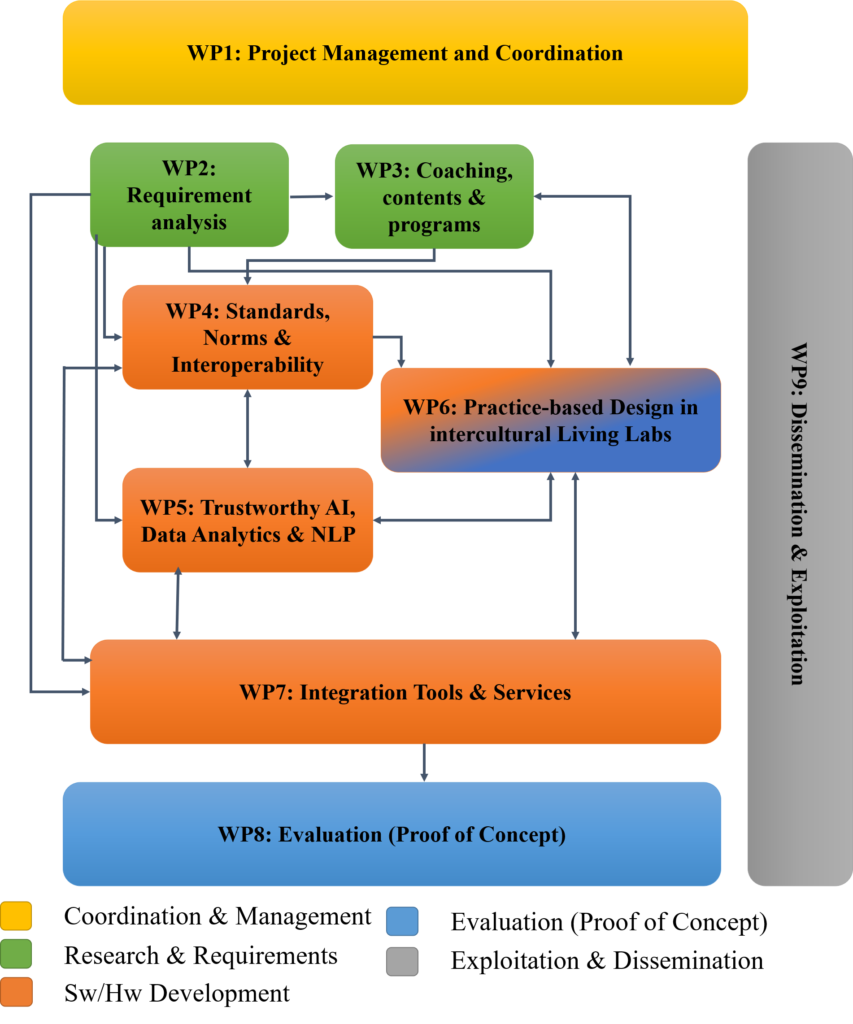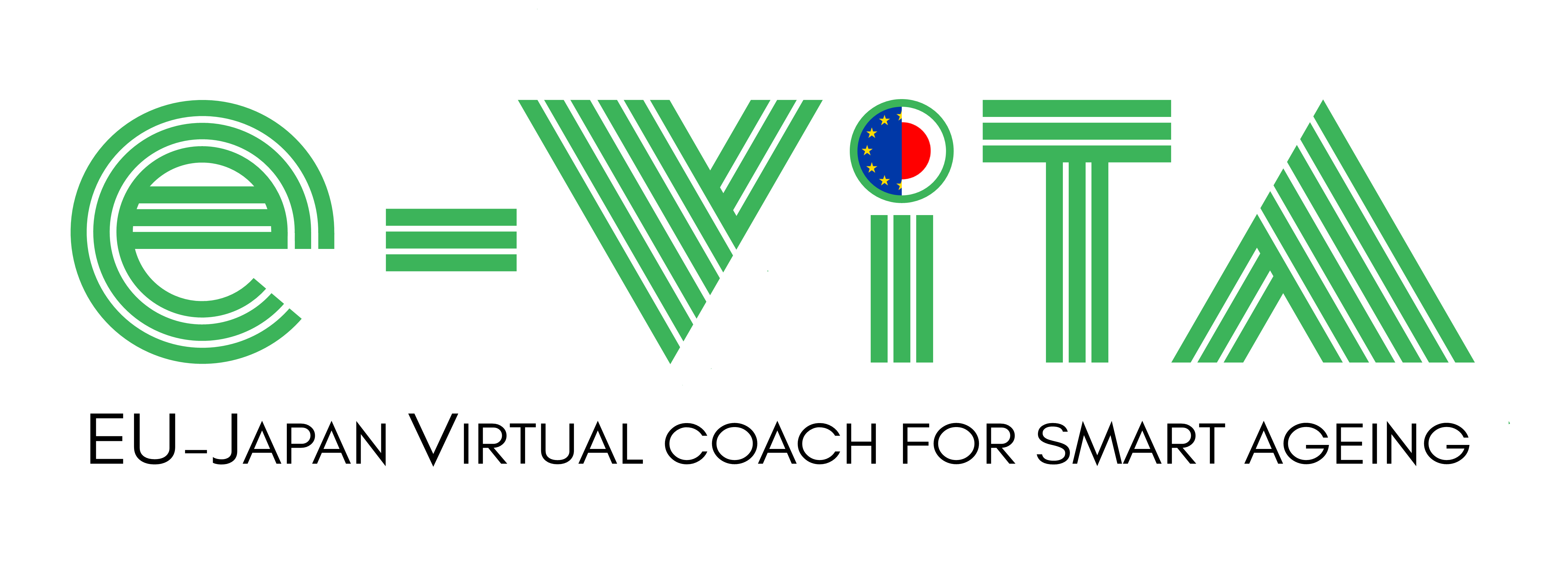Work Packages

WP1 includes all activities related to the project management and coordination. Subtasks there are guidance of the partners, the creation of information standards, and tracking of the overall process in both of and between the two consortia in Europe and Japan, including communication with the EC and MIC.
WP2 will focus on the requirements analysis from an end user perspective and a technical perspective. Subtasks in WP2 will deal with the empirical understanding of end user and stakeholder needs, the identification of parameters to be monitored for user state detection, the identification of technical requirements and the development of an ethical roadmap including data privacy and legal requirements. For this we will use pre-development methods to study early-stage automation adoption that later will be implemented in the design process.
In WP3 the focus will be on intercultural content and programs promoting and influencing wellbeing for community-dwelling older adults in Europe and Japan. Therefore, everyday practices of older adults will be investigated to understand strategies for how older adults maintain and improve their wellbeing, including indicators to facilitate constant health conditions and gender specific practices and cultural demands. Furthermore, this work package will define all needed interventions, and describe a framework for usage data collection, defining parameters to be identified by e-VITA.
The aim of WP4 is to identify the sensing systems and coaching devices for the specific use cases of the project. WP4 will identify various open research issues and challenges for facilitating interoperable IoT communications. Norms and standards for the interoperability of sensing systems and coaching devices will be analysed. In WP4 a use case configurator will be developed as a tool of the platform to identify the best sensor network configuration for each use case based on the user needs and requirements. Sensing systems and coaching devices will be identified to provide an ICT infrastructure to allow interaction between the user and the coach. interaction requires a bi-directional flow of information: from the user and their environment to the coaching system and from the coaching system to the user
WP5 deals with the acquisition, representation, integration and analysis of data generated sensors and human-machine interfaces, including natural language processing and dialogue functionalities with emotional and social awareness, while respecting the basic principles of Trustworthy AI. WP5 will provide deep learning tools, knowledge graphs, language models and question answering over multimodal graphs.
The main goal of WP6 is the definition and implementation of a multi-cultural living lab environment in Europe and Japan in order to support a user-centered iterative design of the virtual coaching system. Appropriate infrastructures will allow for co-creation, exploration, and evaluation of prototypes, scenarios and concepts and promote the generation of innovative ideas together with the end users and stakeholders. WP 6 will also focus on several ELSI aspects (Ethical, Legal and Social) as well as intercultural and gender related needs in Europe and Japan.
WP7 will mainly deal with the design and integration of the e-VITA platform. Therefore, a e-VITA “FIWARE” based platform will be designed and a corresponding technical evaluation and integration plan will be developed. Finally, WP7 will conduct testing and validation of the integration, and a location-based support coach (chatbot connected with the e-VITA Knowledge base of the surrounding community).
WP8 defines the study protocols, including all needed ethical procedures, the screening of older adults to evaluate the system, the description of recruiting processes, the design of testing processes and the design and roll out of a quantitative and qualitative multi-criteria evaluation protocol as well as an additional survey towards various stakeholders in Europe and Japan.
WP9 describes the exploitation and dissemination plans for the e-VITA partnership in Europe and Japan. Exploitation plans include the potential cost-effectiveness of e-VITA, the management of intellectual property rights (IPRs), the steering of a market analysis, the development of a business plan and contribution to potential Start-up creation within incubators in link with the technical e-VITA Partners. Dissemination plans will focus on communication strategies in a public framework, organisation of scientific dissemination, training stakeholders as well as the organisation of final conferences allowing for presentation and discussion of the e-VITA project results.







